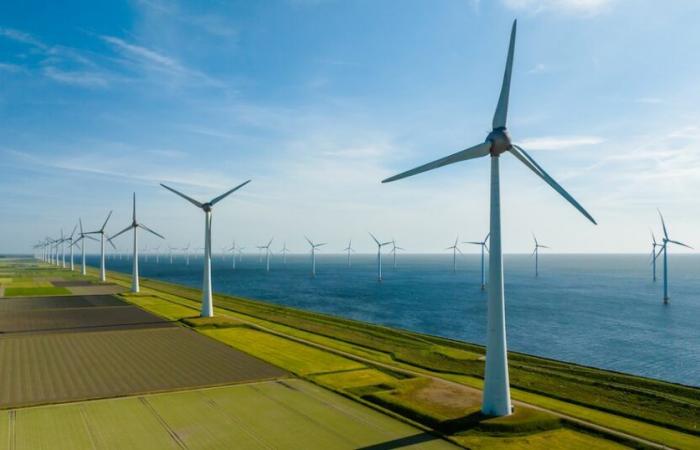Share the publication “What if Trump 2.0 was a golden opportunity for the Europe of sobriety?”
The election of Donald Trump as President of the United States could constitute a major turning point in international geopolitics and more particularly on climate and environmental issues. The president's first decision should be, as he announced during his election campaign, to exit the Paris Agreement, then to dismantle the American Environmental Protection Agency.
He will quickly remove taxes on methane emissions and reverse the pause on liquefied natural gas (LNG) exports, two measures put in place under the Biden administration. On energy issues as on the economy in general, Donald Trump wants to send strong messages to the various stakeholders. Internally, its vision is simple: break down all regulatory or tax barriers that could limit the production and trade of fossil fuels.
Energy as a tool of domination of the USA over the European Union
Outwards, the slogan America is Back will translate into all commercial relations by using tools favoring import taxes and promoting on a global scale a discretionary policy based on mood, excess and short-term communication. Already the leading producer of oil and gas, the leading global exporter of LNG and having the world's leading export capacities on this market, the United States immediately holds significant power over the two main global energy markets, reflecting the return of United States as a major energy power since the mid-2010s.
The election of Donald Trump could, however, signify the entry into a new era: that of a profound affirmation of American market power over energy to tend towards domination. This policy will first and foremost affect consumer countries that are largely dependent on American exports. And first and foremost the European Union.
A Europe condemned to geographical dependencies?
After neglecting weak signals, such as Moscow's use in the 2000s and 2010s of gas weaponry to resolve its main disputes with neighboring countries such as the Baltic states, Georgia and Ukraine, the European Union experienced a painful awakening during Russia's invasion of Ukraine. On the eve of the conflict, the various EU countries imported more than 96% of their oil and petroleum products from Russia, more than 87% of their gas and more than 44% of their coal. Moscow was still in 2021 the leading supplier of oil (27% of total imports) and gas (45% of total import volume) to the Union.
The EU has therefore strived since March 2022 and the implementation of the REPowerEU plan to reduce its gas dependence on its first supplier. In particular, it quickly diversified its supplies by massively importing gas from the United States. From being dependent on supplies from Moscow, the EU has thus moved to being dependent on supplies from Washington. In 2023, 45% of European LNG imports were of American origin and the old continent was the primary destination for American gas. And we could thus consider this relationship as doubly beneficial: for the United States a guaranteed outlet for its exporters and for Europe significant gas availability in a context of restricted internal production in the European area.
Europe, between energy dependencies and geopolitical arbitrations
For an attentive reader of the situation existing before the invasion of Ukraine, the situation was in every respect similar since the EU constituted for Russia a financially attractive outlet for Russian companies in relation to a constrained internal market and for EU countries an opportunity to import gas at a reasonable price.
If there is no question of comparing Donald Trump and Vladimir Putin, can we not imagine scenarios in which American gas could constitute a bargaining and arbitration currency for Washington on delicate subjects. And these could be numerous: global or sectoral trade negotiations (agriculture); NATO, war in Ukraine, low-carbon technologies, etc. Above all, the United States partially has in its hands an energy lever that can impact the level and volatility of prices for energy raw materials in Europe. In a context of low-carbon transition and competition for reindustrialization and the relocation of companies in European or American areas, having inexpensive energy constitutes a fundamental advantage.
Faced with this new situation, is Europe therefore condemned to move from one geographical dependence to another in the decades to come?
Transforming suffered sobriety into systemic sobriety
If the war in Ukraine was a catalyst for decarbonization of the European energy mix, it also highlighted the need to implement sobriety policies. The context of the time benefited, it is true, from the publication of the third part of the sixth report of the intergovernmental panel on climate change (IPCC) in April 2022. The IPCC gave an interesting and expanded definition to all natural resources:
“Sobriety policies are a set of daily measures and practices that avoid demand for energy, raw materials, land and water, while ensuring the well-being of all within planetary limits.”
This is how in Europe, and more particularly in France, the year 2022 was profoundly distinguished by an increased call for energy sobriety. This period echoed the 1970s, marked by the two oil shocks, which also gave rise to the first calls for moderation in energy consumption and the fight against waste. As early as September 2022, the European Commission announced a target of reducing electricity consumption by 15% during the winter.
In the fall, France unveiled a national plan to reduce energy consumption, targeting the State (limiting temperatures in public buildings), businesses (incentives for teleworking), and households (temperature instructions in homes, speed limits on motorways). This plan was also paradoxically accompanied by a very expensive price shield, intended to protect all consumers and not the most deprived. If these plans made it possible to highlight sobriety policies in the public debate, they nevertheless constituted a form of reactionary and suffered sobriety.
Sobriety: a new strategic resource for Europe
The current context of geopolitical uncertainty calls for a completely different construction of sobriety policies to engage our European societies in systemic policies on this subject. However, on energy as on critical materials, sobriety remains a strategic unthinkable. Indeed, States prefer to find solutions to a problem of dependence in areas of national production or diversification of actors. However, systematically and deeply questioning our needs and uses would allow an approach that is much less risky in the long term and much less subject to electoral or geopolitical hazards.
More than the possession of a raw material such as energy and critical materials, it is sobriety itself which could become a leading strategic resource for States. A constructed entry into the era of sober powers could constitute an attractive model for economies devoid of natural resources and concerned with geopolitical affirmation. By strengthening the autonomy of countries, sobriety policies contribute to improving the trade balance and increasing energy and material security. They thus make it possible to generate financial surpluses to invest in resilient infrastructure structural policies allowing the moderation of future consumption.
A geopolitics of sobriety for a geopolitical sobriety
Reducing consumption is also a factor in reducing greenhouse gas emissions and pollution linked to the production or consumption of energy or manufactured goods. The latter offers sober States a form of attractiveness allowing them to develop international leadership on these issues. Seeking a new era of material and technological simplification, moderating consumption could become a major asset for attracting skills to Europe, standing out from other regions of the world, and simultaneously addressing the crucial issues of sovereignty, resilience and supply chains. value.
And the virtuous circle initiated by systemic sobriety allows us to focus on fundamental issues such as training, public health and the well-being of populations. It requires a change in political paradigm requiring apprehension of the long term and requiring the construction of collective sobriety in parallel with calls for individual sobriety.
The current geopolitical uncertainty calls for structural responses and sobriety provides a solution for European countries. Let's not wait for the next energy crisis and build our resilience today. Sobriety certainly has a cost, but the development of these sources opens up new perspectives: developing new power levers in parallel with Hard Power (economy, military factors, etc.) and Soft Power based on an ecological power of moderation, a Ecological Power. Developing a sobriety that respects planetary limits and improves our capacities for geopolitical resilience is perhaps simply called freedom!
About the author: Emmanuel Hache. Scientific Assistant within the Economy and Monitoring Department, Economist and forecaster, IFP Énergies nouvelles.
This article is republished from The Conversation under a Creative Commons license. Read the original article.






